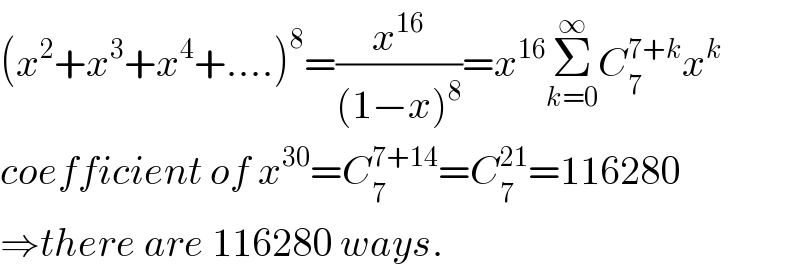
Question and Answers Forum
Question Number 81724 by zainal tanjung last updated on 14/Feb/20

Commented by Tony Lin last updated on 15/Feb/20

Commented by mr W last updated on 15/Feb/20

| ||
Question and Answers Forum | ||
Question Number 81724 by zainal tanjung last updated on 14/Feb/20 | ||
 | ||
Commented by Tony Lin last updated on 15/Feb/20 | ||
 | ||
Commented by mr W last updated on 15/Feb/20 | ||
 | ||